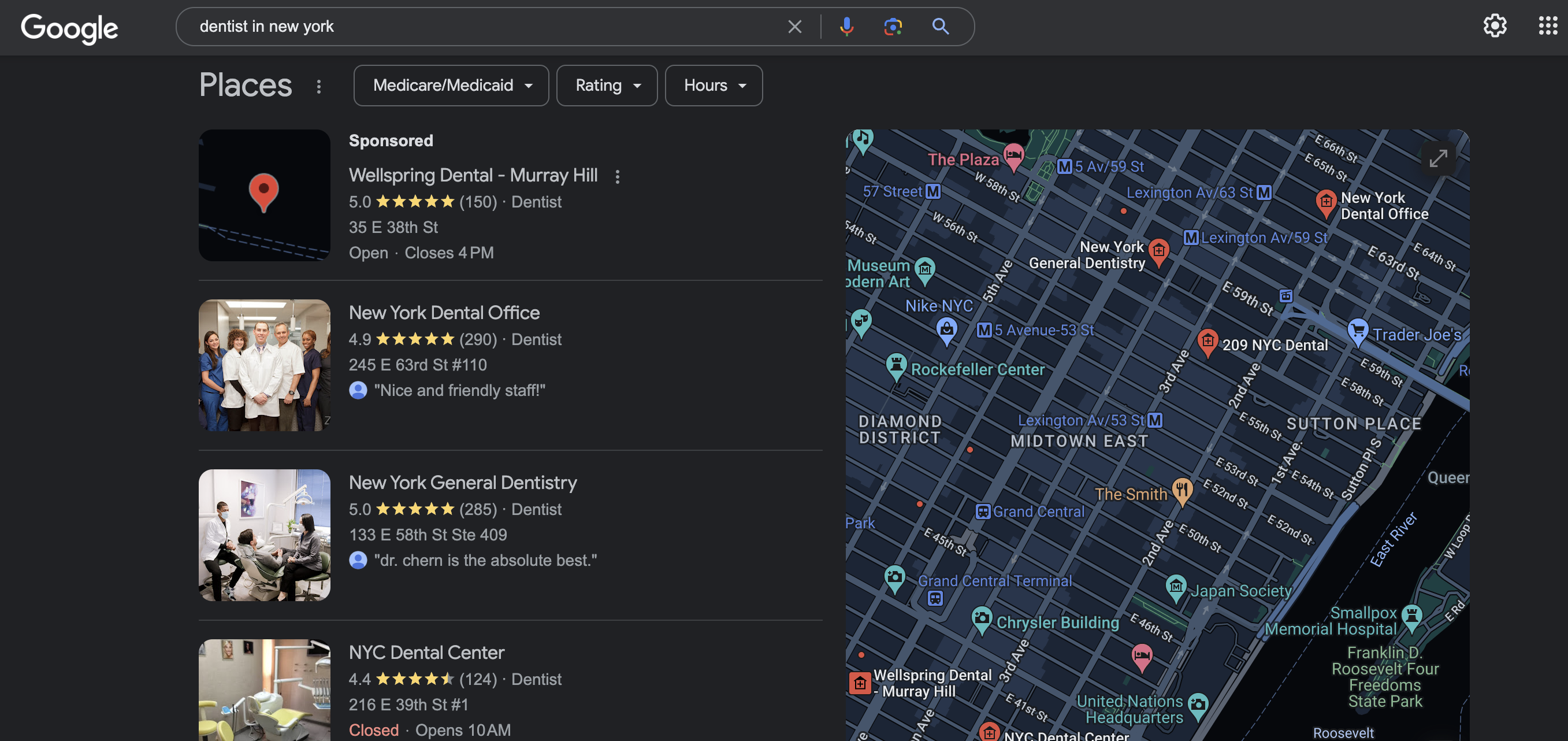Are you ready to take your SEO game to the next level? In this blog, we will delve into the world of voice search optimization and show you 5 key steps for success. Voice search is revolutionizing the way people find information online, and it's crucial for businesses to adapt their SEO strategies accordingly.
We'll start by explaining what voice search optimization is and why it's important. Then, we'll explore the differences between voice search and text search, so you can understand how to optimize for both. Next, we'll walk you through the 5 essential steps to perform voice search optimization, including targeting the right keywords and leveraging schema markup.
We'll also share some best practices for voice search optimization, such as using conversational language in your content and prioritizing local SEO. And finally, we'll answer some frequently asked questions about voice search optimization. Get ready to master voice search and boost your website's visibility in the ever-evolving digital landscape!
What is voice search optimization?
Voice search optimization is the practice of optimizing your website and content to appear in voice search results. This involves understanding how people use voice search and creating content that aligns with their queries. By using conversational language, answering common questions, and optimizing for local search, you can enhance your website's visibility and attract more traffic from voice searches.

Why optimize for voice search?
Optimizing for voice search is crucial due to the rising popularity of voice assistants like Siri, Alexa, and Google Assistant. It enhances website visibility and rankings in voice search results by targeting long-tail keywords. Additionally, as voice search is frequently used for local searches, optimizing for it can drive more local traffic to your business.
How is voice search different from text search?
Voice search and text search differ in the way they are performed and the format of their results. Voice search involves speaking into a device, while text search involves typing keywords. Voice search is more conversational, providing immediate spoken answers, while text search yields a list of web pages. Voice search relies on voice recognition technology, while text search matches keywords with content using algorithms.
5 Steps to Perform Voice Search Optimization
Successfully optimizing your website for voice search involves performing a series of crucial steps. First, it is essential to grasp the importance of voice search in today's digital landscape.
Next, conduct thorough keyword research to uncover common voice search queries. Once you have identified these queries, optimize your website content to deliver comprehensive answers. Enhance your website's visibility in voice search results by employing structured data markup.
Lastly, always monitor and analyze your voice search performance to make continuous improvements. By diligently following these five steps, you can master voice search optimization and enhance your website's visibility.
Targeting the right keyword queries
To perform successful voice search optimization, it is crucial to target the right keyword queries. By conducting thorough keyword research, you can identify the specific phrases and questions that voice searchers use.
Incorporate these queries naturally into your website content to optimize for voice search. Using conversational language, create dedicated FAQ pages or blog posts that directly address common voice search queries. By doing so, your website will gain visibility and relevance in voice search results, improving the overall user experience.
Understanding long-tail keywords
In the realm of voice search optimization, it's essential to grasp the significance of long-tail keywords. As opposed to traditional text-based searches, voice search queries typically take on a more conversational and extended form. To truly optimize your website for voice search, your key focus should be on identifying and incorporating relevant long-tail keywords.

The first step is conducting comprehensive keyword research to unveil the specific phrases and questions that users are likely to ask during voice searches. Once you've curated these long-tail keywords, your task is to seamlessly integrate them throughout your website content. This means utilizing them in headings, subheadings, and body text.
Take it a step further by creating unique FAQ pages or engaging blog posts that provide direct answers to commonly asked voice search queries. By doing so, you're not only optimizing your website for voice search but also enhancing its overall visibility in voice search results. Keep a close eye on your website's performance in voice search to continuously refine and enhance its voice search optimization.
Importance of schema markup
Enhancing your website's visibility in voice search results is essential for voice search optimization. One key strategy to achieve this is by incorporating schema markup.
By adding schema markup, you provide search engines with a better understanding of your content, resulting in more relevant voice search results. Schema markup helps search engines identify crucial details, like business hours, location, and reviews.
It's important to implement this markup, even though it may require technical knowledge or the help of a developer. The benefits are substantial, as schema markup can significantly improve your website's performance in voice search results.
Local listing relevance
To optimize for voice search and improve your visibility in voice search results, it is crucial to focus on local listings. Ensuring the accuracy and consistency of your business listings across platforms like Google My Business and Bing Places for Business is key.

This includes your business name, address, phone number, and other contact information. Incorporating relevant keywords and phrases in your local listings can further boost your chances of appearing in voice search results for local queries. By prioritizing local listings, you can effectively enhance your voice search optimization efforts and reach a wider audience.
Understanding automatic speech recognition
Automatic speech recognition (ASR) drives voice search optimization by transcribing spoken words into text. ASR relies on accurate transcription and understanding of spoken language, encompassing accents, dialects, and languages.
Understanding how ASR functions and interprets speech is paramount for optimizing voice search. Align your content with natural language and conversational phrases, mirroring how people speak during voice searches. Including long-tail keywords and frequently asked questions increases the likelihood of your content appearing in voice search results.
Voice search optimization best practices
To achieve optimal voice search optimization, it is vital to have a thorough understanding of its distinctive nature compared to traditional text-based search methods. Voice searches are inherently more conversational and revolve around inquiry-based queries, making it imperative to incorporate natural language and long-tail keywords seamlessly into your content.
When crafting your materials, prioritize delivering succinct and direct answers to frequently asked questions that voice searchers may pose. Furthermore, ensuring that your website loads swiftly and exhibits mobile responsiveness is essential for providing a seamless experience to voice search users.
Employing structured data markup aids search engines in comprehending and presenting your content in voice search results, amplifying visibility and user experience.
Using conversational language in your content
Creating content that is optimized for voice search involves adopting a conversational tone and using natural language and long-tail keywords. By rephrasing your writing points and avoiding verbatim use, you can ensure that your content aligns with how people typically speak during voice searches.
Focus on answering specific questions and providing direct solutions to user queries, as voice assistants often rely on these featured snippets for answers. It's also crucial to ensure that your website is mobile-friendly and has fast loading times, as voice searches are commonly conducted on mobile devices.
Prioritizing local SEO
Local SEO is a crucial aspect of optimizing for voice search. With the increasing popularity of voice search, it is essential for businesses to target local search queries. Prioritizing local SEO involves ensuring accuracy and up to date information of business information on online directories and review sites.Incorporating location-specific keywords in website content and metadata enhances local relevance.
Additionally, creating FAQ pages or blog posts that address industry or location-specific queries optimizes voice search performance. By emphasizing local SEO, businesses can improve visibility in voice search results and attract more local customers.
Capturing Google featured snippets
Capturing Google featured snippets is critical for voice search optimization. With the increasing popularity of voice assistants like Siri, Alexa, and Google Assistant, more and more people are relying on them to find information.
To optimize your content for voice search, it is essential to understand how people use voice commands and tailor your content accordingly. Featured snippets play a significant role in voice search as they are often read aloud by voice assistants when providing answers to user queries.
To capture Google featured snippets, make sure to provide concise and informative answers to commonly asked questions in your content. Structuring your content with clear headings, bullet points, and numbered lists can also enhance your chances of being selected as a featured snippet.
Optimizing for mobile
Optimizing for mobile is crucial in the realm of voice search optimization. With the increasing prevalence of voice assistants on smartphones, it is essential to have a website that is both mobile-friendly and responsive. A mobile-friendly website should boast features such as fast loading times, user-friendly navigation, and structured data markup – empowering search engines to recognize and present your content in voice search results.
When crafting content, it is important to strike a balance between conciseness and conversationality to align with users' voice search queries. Incorporating local SEO strategies, like optimizing for "near me" searches and ensuring accurate business information in online directories, can further boost your website's visibility in voice search results.
Keeping your site moving fast
Optimizing your website for voice search is not only about targeting the right keywords and providing relevant content. It's also important to keep your site moving fast to enhance the user experience and improve visibility in search results. By following these steps, you can ensure that your website loads quickly and provides a seamless browsing experience for voice searchers:
To keep your site moving fast, start by ensuring that your website is mobile-friendly and responsive. With more and more users performing voice searches on their smartphones, having a mobile-friendly website is crucial. It should be able to adapt to different screen sizes and load quickly on mobile devices.
In addition to that, optimizing your website's performance is essential. One way to do this is by minimizing the use of large files, such as JavaScript and CSS. These files can slow down your site's loading speed, leading to a poor user experience. It's also important to optimize images and videos on your site by reducing their file sizes without sacrificing quality.
Regularly testing your website's loading speed using tools like Google PageSpeed Insights or GTmetrix is another important step. These tools can provide insights into your site's performance and suggest optimizations to improve speed and responsiveness.
By following these steps, you can ensure that your website is optimized for voice search and provides a fast and seamless experience for users.
The Importance of Voice Search
The growing influence of smart speakers and virtual assistants has catapulted voice search optimization into the spotlight. It is imperative for businesses to adapt and optimize their websites to reach a broader audience. By incorporating conversational language and prioritizing local SEO, you can capture the attention of voice searchers seeking immediate results.Understanding and utilizing long-tail keywords, while also embracing schema markup, can improve your website's relevance in voice search queries.
In addition, fast-loading mobile pages and the ability to provide concise and informative answers can significantly enhance the user experience. As voice search continues to evolve, keeping up with the latest trends and best practices will allow businesses to stay ahead of the competition.
How does automatic speech recognition system work?
Automatic speech recognition (ASR) systems convert spoken language into written text. They utilize acoustic models to analyze audio input and determine the phonetic representation of each word, while language models predict the most likely sequence of words based on context. ASR has seen major advancements in deep learning and neural networks, leading to improved accuracy.
Conclusion
In conclusion, voice search optimization is becoming increasingly important in today's digital landscape. With the rise of smart speakers and voice assistants, optimizing your content for voice search can give you a competitive edge and help you reach a wider audience.
By targeting the right keywords, understanding long-tail keywords, implementing schema markup, prioritizing local SEO, and optimizing for mobile, you can improve your chances of appearing in voice search results. If you want to know more about voice search optimization, reach out to our experts!








